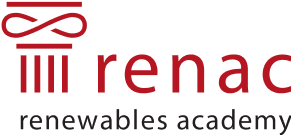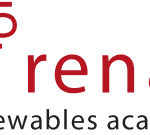This website uses cookies so that we can provide you with the best user experience possible. Cookie information is stored in your browser and performs functions such as recognising you when you return to our website and helping our team to understand which sections of the website you find most interesting and useful.
Customer-specific programmes
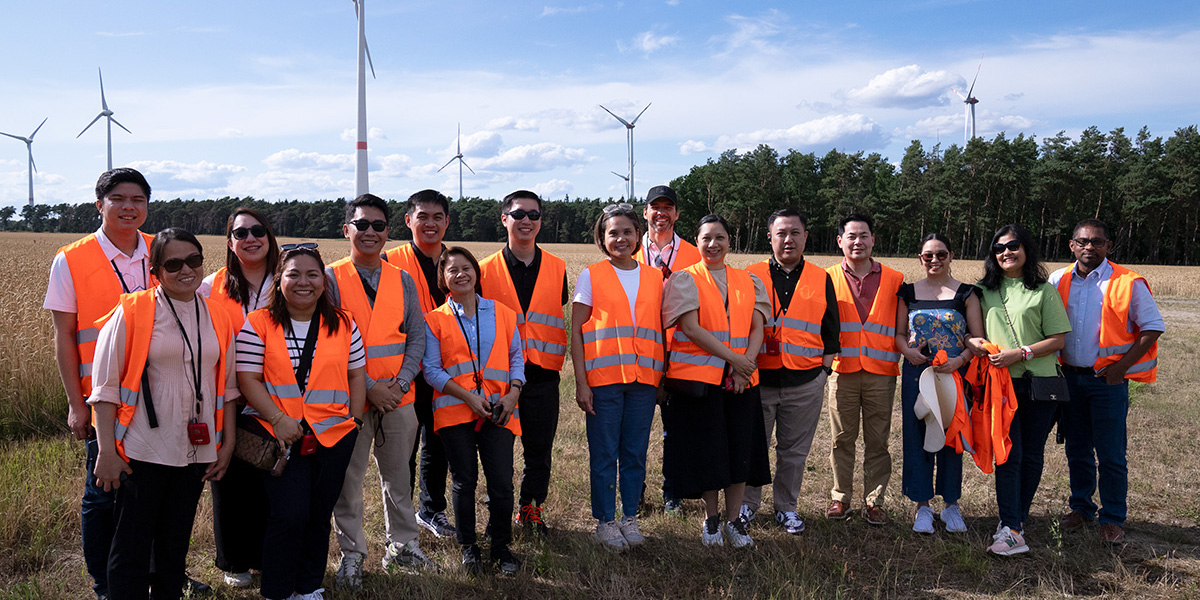
Job requirements in the green energy markets are complex and manifold. To ensure a company or organisation success, employees need extensive skills and up-to-date know-how.
RENAC customer-specific programmes offer the best way to meet participants’ training objectives:
- Analysis of participants’ capacity needs
- Selection of training contents and methods according to prior knowledge and needs
- The most suitable trainers
- Development of comprehensive materials with the highest quality standards
- Implementation of the training
Additionally, the training can be adjusted in duration and depth, organised for groups of various sizes and adapted to cover various technologies. Clients can determine when and where the training takes places.
Filter and search
Type
Name
Duration
Study time
Info
Content:
• Biomass properties
• Biomass logistics
• Energy systems
• Biomass energy projects
Learning objectives:
After completion of this course, participants will be able to:
- Describe the range of applications for biomass systems
- Explain the relevance of biomass in the energy mix
- Specify the most common biomass system types, their components, purpose and output
- Analyse the impact of different input parameters on biomass systems’ output
- Describe the main economic and legal aspects of bio-energy projects
Target group:
Professionals from the energy sector, engineers, project developers
- business models, decentralized renewable energy (DRE), financial viability
hours
Content:
- Key features of a business model in the decentralised renewable energy (DRE) sector
- Types of business models in the DRE sector
- Most common business models in the various DRE markets
- Applications of business models
- Commercial viability of DRE investments
Learning objectives:
After completion of this course, participants will be able to:
- understand how business models are structured in the various DRE market segments in order to mitigate risks and to make investments in DRE systems profitable and bankable and
- explain to what extent investments in DRE systems are viable and how risk can be mitigated and managed.
Target group:
This training suits those who:
- Intend to learn about structure and viability of business models in decentralised renewable energy (DRE) market segments
- Intend to introduce and enhance the financing of green energy systems in their financial institution (e.g. bank managers and staff);
- Intend to promote green energy finance in the financial sector (e.g. policy and decision makers, public organisations)
- Aim at promoting investments in green energy systems among potential investors in the industrial or public sectors (e.g. project developers, representatives from associations, consultancies)
- Are potential investors for decentralised renewable energy systems (e.g. SMEs, corporations, hotels, public institutions, project developers)
- business model navigator, development methodologies, roles and activities of different actors in the PV value chain
hours
Content:
- Overview of business model design
- Suitable business models for the main actors involved in utility-scale PV projects: project developers, investors, EPC contractors, O&M contractors, independent engineers, specialists for inspection and testing, mechanical installers of mounting structures and PV modules, SMEs for service and repair
Learning objectives:
After completion of this course, participants will be able to:
- describe and implement the Business Model Navigator method for designing business models
- describe suitable business models for the main actors involved in utility-scale PV projects
Target group:
This training suits those who:
- are professionals planning to be involved in utility-scale PV projects, engineers, project developers, banks and other lenders, investors, EPC contractors, independent engineers, installers, O&M engineers
- business plans
hours
Content:
- Rationale and structure
- Guidelines for business plan development
- Toolkit to write Business plan
Learning objectives:
After completion of this course, participants will be able to:
- Potential lenders: Identify the critical aspects and financial risks of a business proposal that should be considered when carrying out the due diligence on loan applications.
- Potential borrowers: Name and describe elements that should be taken into account when creating a business plan for green energy investments or businesses including decentralised renewable energy (DRE).
Target group:
This training suits those who:
- Intend to learn about business plans for green energy investments in general
- Are potential lenders and want to acquire knowledge on critical aspects and financial risks of green energy business proposals to facilitate the due diligence of loan applications.
- Are potential borrowers and want to learn how to write a business plan for green energy investments or businesses to successfully apply for loans
- business description, development of bankable business plans, financial plans, marketing plans, roles and activities of different actors in the PV value chain, SWOT analysis
hours
Content:
- Key aspects of a bankable business plan in the PV market
- Business plans for the main actors involved in utility-scale PV projects: project developers, investors, EPC contractors, O&M contractors, independent engineers, specialists for inspection and testing, mechanical installers of mounting structures and PV modules, SMEs for service and repair
Learning objectives:
After completion of this course, participants will be able to:
- describe key aspects of a bankable business plan in the PV market
- describe suitable business plans for the main actors involved in utility-scale PV projects
Target group:
This training suits those who
- are professionals planning to be involved in utility-scale PV projects, engineers, project developers, banks and other lenders, investors, EPC contractors, independent engineers, installers, O&M engineers
- carbon taxes, effectiveness evaluation, emission trading, GHG emission landscape, offsetting mechanisms
hours
Content:
- Introduction to carbon pricing mechanisms
- Evolution of carbon pricing mechanisms
- Principles of emission trading schemes
- Principles of carbon taxes
- Principles of offsetting mechanisms
- Analysing the effectiveness of carbon pricing mechanisms
- Further orientation on carbon pricing
Learning objectives:
After completing this online course, participants will be able to:
- Illustrate the global landscape of emissions and respective pricing mechanism
- Explain principles of the main carbon pricing mechanisms (carbon tax, emission trading system and offsetting)
- Discuss pros and cons of carbon pricing mechanisms on national and international levels
- Analyse the impact of carbon pricing mechanisms on the economy and on actual greenhouse gas emission reduction
Target group:
This training suits those who
- Want to have an overview on carbon pricing mechanisms and related experience
- Aim to develop a carbon pricing framework or mechanism for their country
- Want to consult governmental institutions on different options to establish carbon pricing
- country case studies, Namibia, project finance
hours
Content:
- Definition of project finance and comparison to SME finance
- Project descriptions
- Debt and equity funding
Learning objectives:
After completion of this course, participants will be able to:
- Understand Project Finance and its key characteristics and elements.
- Identify the differences between Project Finance and SME Finance.
- Understand the process of funding Equity and Debt Finance for the project.
Target group:
This training suits professionals who
- Intend to learn about project finance;
- Intend to introduce and enhance the financing of large-scale green energy projects in their financial institution (e.g. bank managers and staff);
- Intend to promote green energy project finance in the financial sector (e.g. policy and decision makers, public organisations)
- Aim at promoting investments in green energy projects among potential investors in the industrial or public sectors (e.g. project developers, representatives from associations, consultancies)
- Are potential investors for green energy projects (e.g. Industrial or infrastructure companies, large manufacturers, public institutions, project developers)
hours
Content:
- Purpose of the investment and business case
- Characterisctics of the solar PV system
- Finacial analytics
- Seinsitivity analitics
- Assessment of technical and financial feasibility and risk
Learning objectives:
Target group:
This training suits professionals who
- Intend to learn about the concept of captive power;
- Intend to introduce and enhance the financing of green energy systems in their financial institution (e.g. bank managers and staff);
- Intend to promote green energy finance in the financial sector (e.g. policy and decision makers, public organisations)
- Aim at promoting investments in green energy systems among potential investors in the commercial and industrial sectors (e.g. project developers, representatives from associations, consultancies)
- Are potential investors for green energy systems in the commercial and industrial sectors (e.g. large corporations, SMEs, project developers)
- country case studies, Nigeria, solar cooling
hours
Content:
- Purpose of the investment and business case
- Characteristics of the solar cooling system
- Financial analysis
- Risk analysis
- IMPACT: Benefits of the system
Learning objectives:
Target group:
This training suits professionals who
- Intend to learn about solar cooling;
- Intend to introduce and enhance the financing of green agricultural projects in their financial institution (e.g. bank managers and staff);
- Intend to promote green agricultural finance in the financial sector (e.g. policy and decision makers, public organisations)
- Aim at promoting investments in solar cooling projects among potential investors in the agricultural sector (e.g. project developers, representatives from associations, consultancies)
- Are potential investors for solar cooling systems in the agricultural sector (e.g. cooperatives, SMEs, project developers)
- country case studies, irrigation, Senegal
hours
Content:
- Purpose of the investment and business case
- Solar pump characteristics
- Financial analysis
- Assessment of technical & financial feasibility and risks
Learning objectives:
Target group:
This training suits professionals who
- Intend to learn about solar irrigation;
- Intend to introduce and enhance the financing of green agricultural projects in their financial institution (e.g. bank managers and staff);
- Intend to promote green agricultural finance in the financial sector (e.g. policy and decision makers, public organisations)
- Aim at promoting investments in solar irrigation projects among potential investors in the agricultural sector (e.g. project developers, representatives from associations, consultancies)
- Are potential investors for solar irrigation systems in the agricultural sector (e.g. cooperatives, SMEs, project developers)
- country case studies, overview / general aspects, Senegal, Sub-Sahara Africa, Uganda
hours
Content:
- The energy sector context and the role of DRE in SSA: an overview
- Example of DRE applications
- Use case examples in Uganda and Senegal
Learning objectives:
After completion of this course, participants will be able to:
- understand the electricity access situation in Sub-Saharan Africa,
- recognise usefulness of decentralized renewable energy solutions and
- be familiar with examples of applications for decentralised renewable energy models.
Target group:
This training suits professionals who
- Intend to learn about decentralised renewable energy solutions for the energy supply in sub-Saharan Africa;
- Intend to introduce and enhance the financing of green energy systems in their financial institution (e.g. bank managers and staff);
- Intend to promote green energy finance in the financial sector (e.g. policy and decision makers, public organisations)
- Aim at promoting investments in green energy systems among potential investors in the industrial or public sectors (e.g. project developers, representatives from associations, consultancies)
- Are potential investors for green energy systems (e.g. SMEs, hotels, public institutions, project developers)
- overview / general aspects, policies, power system
hours
Content:
• The power system in Europe
• European policies for the energy sector
• The German power system
• Decarbonisation in the UK
• PV in Spain
Learning objectives:
After completion of this course, participants will be able to
- Explain the electricity generation infrastructure of the European power system,
- Elaborate on European policies for the energy sector,
- Compare different national policy frameworks from Europe.
Target group:
This training suits those who
- are interested in the history and current developments of climate and energy policy
- want to learn from experiences made in Europe regarding policies for renewable energies
- Renewable energy and climate project developers and investors, professionals working in financing institutions, consultancies, and public organisations
Content:
• Biomass properties
• Biomass logistics
• Energy systems
• Biomass energy projects
Learning objectives:
After completion of this course, participants will be able to:
- Describe the range of applications for biomass systems
- Explain the relevance of biomass in the energy mix
- Specify the most common biomass system types, their components, purpose and output
- Analyse the impact of different input parameters on biomass systems’ output
- Describe the main economic and legal aspects of bio-energy projects
Target group:
Professionals from the energy sector, engineers, project developers
Content:
- Key features of a business model in the decentralised renewable energy (DRE) sector
- Types of business models in the DRE sector
- Most common business models in the various DRE markets
- Applications of business models
- Commercial viability of DRE investments
Learning objectives:
After completion of this course, participants will be able to:
- understand how business models are structured in the various DRE market segments in order to mitigate risks and to make investments in DRE systems profitable and bankable and
- explain to what extent investments in DRE systems are viable and how risk can be mitigated and managed.
Target group:
This training suits those who:
- Intend to learn about structure and viability of business models in decentralised renewable energy (DRE) market segments
- Intend to introduce and enhance the financing of green energy systems in their financial institution (e.g. bank managers and staff);
- Intend to promote green energy finance in the financial sector (e.g. policy and decision makers, public organisations)
- Aim at promoting investments in green energy systems among potential investors in the industrial or public sectors (e.g. project developers, representatives from associations, consultancies)
- Are potential investors for decentralised renewable energy systems (e.g. SMEs, corporations, hotels, public institutions, project developers)
Content:
- Overview of business model design
- Suitable business models for the main actors involved in utility-scale PV projects: project developers, investors, EPC contractors, O&M contractors, independent engineers, specialists for inspection and testing, mechanical installers of mounting structures and PV modules, SMEs for service and repair
Learning objectives:
After completion of this course, participants will be able to:
- describe and implement the Business Model Navigator method for designing business models
- describe suitable business models for the main actors involved in utility-scale PV projects
Target group:
This training suits those who:
- are professionals planning to be involved in utility-scale PV projects, engineers, project developers, banks and other lenders, investors, EPC contractors, independent engineers, installers, O&M engineers
Content:
- Rationale and structure
- Guidelines for business plan development
- Toolkit to write Business plan
Learning objectives:
After completion of this course, participants will be able to:
- Potential lenders: Identify the critical aspects and financial risks of a business proposal that should be considered when carrying out the due diligence on loan applications.
- Potential borrowers: Name and describe elements that should be taken into account when creating a business plan for green energy investments or businesses including decentralised renewable energy (DRE).
Target group:
This training suits those who:
- Intend to learn about business plans for green energy investments in general
- Are potential lenders and want to acquire knowledge on critical aspects and financial risks of green energy business proposals to facilitate the due diligence of loan applications.
- Are potential borrowers and want to learn how to write a business plan for green energy investments or businesses to successfully apply for loans
Content:
- Key aspects of a bankable business plan in the PV market
- Business plans for the main actors involved in utility-scale PV projects: project developers, investors, EPC contractors, O&M contractors, independent engineers, specialists for inspection and testing, mechanical installers of mounting structures and PV modules, SMEs for service and repair
Learning objectives:
After completion of this course, participants will be able to:
- describe key aspects of a bankable business plan in the PV market
- describe suitable business plans for the main actors involved in utility-scale PV projects
Target group:
This training suits those who
- are professionals planning to be involved in utility-scale PV projects, engineers, project developers, banks and other lenders, investors, EPC contractors, independent engineers, installers, O&M engineers
Content:
- Introduction to carbon pricing mechanisms
- Evolution of carbon pricing mechanisms
- Principles of emission trading schemes
- Principles of carbon taxes
- Principles of offsetting mechanisms
- Analysing the effectiveness of carbon pricing mechanisms
- Further orientation on carbon pricing
Learning objectives:
After completing this online course, participants will be able to:
- Illustrate the global landscape of emissions and respective pricing mechanism
- Explain principles of the main carbon pricing mechanisms (carbon tax, emission trading system and offsetting)
- Discuss pros and cons of carbon pricing mechanisms on national and international levels
- Analyse the impact of carbon pricing mechanisms on the economy and on actual greenhouse gas emission reduction
Target group:
This training suits those who
- Want to have an overview on carbon pricing mechanisms and related experience
- Aim to develop a carbon pricing framework or mechanism for their country
- Want to consult governmental institutions on different options to establish carbon pricing
Content:
- Definition of project finance and comparison to SME finance
- Project descriptions
- Debt and equity funding
Learning objectives:
After completion of this course, participants will be able to:
- Understand Project Finance and its key characteristics and elements.
- Identify the differences between Project Finance and SME Finance.
- Understand the process of funding Equity and Debt Finance for the project.
Target group:
This training suits professionals who
- Intend to learn about project finance;
- Intend to introduce and enhance the financing of large-scale green energy projects in their financial institution (e.g. bank managers and staff);
- Intend to promote green energy project finance in the financial sector (e.g. policy and decision makers, public organisations)
- Aim at promoting investments in green energy projects among potential investors in the industrial or public sectors (e.g. project developers, representatives from associations, consultancies)
- Are potential investors for green energy projects (e.g. Industrial or infrastructure companies, large manufacturers, public institutions, project developers)
Content:
- Purpose of the investment and business case
- Characterisctics of the solar PV system
- Finacial analytics
- Seinsitivity analitics
- Assessment of technical and financial feasibility and risk
Learning objectives:
Target group:
This training suits professionals who
- Intend to learn about the concept of captive power;
- Intend to introduce and enhance the financing of green energy systems in their financial institution (e.g. bank managers and staff);
- Intend to promote green energy finance in the financial sector (e.g. policy and decision makers, public organisations)
- Aim at promoting investments in green energy systems among potential investors in the commercial and industrial sectors (e.g. project developers, representatives from associations, consultancies)
- Are potential investors for green energy systems in the commercial and industrial sectors (e.g. large corporations, SMEs, project developers)
Content:
- Purpose of the investment and business case
- Characteristics of the solar cooling system
- Financial analysis
- Risk analysis
- IMPACT: Benefits of the system
Learning objectives:
Target group:
This training suits professionals who
- Intend to learn about solar cooling;
- Intend to introduce and enhance the financing of green agricultural projects in their financial institution (e.g. bank managers and staff);
- Intend to promote green agricultural finance in the financial sector (e.g. policy and decision makers, public organisations)
- Aim at promoting investments in solar cooling projects among potential investors in the agricultural sector (e.g. project developers, representatives from associations, consultancies)
- Are potential investors for solar cooling systems in the agricultural sector (e.g. cooperatives, SMEs, project developers)
Content:
- Purpose of the investment and business case
- Solar pump characteristics
- Financial analysis
- Assessment of technical & financial feasibility and risks
Learning objectives:
Target group:
This training suits professionals who
- Intend to learn about solar irrigation;
- Intend to introduce and enhance the financing of green agricultural projects in their financial institution (e.g. bank managers and staff);
- Intend to promote green agricultural finance in the financial sector (e.g. policy and decision makers, public organisations)
- Aim at promoting investments in solar irrigation projects among potential investors in the agricultural sector (e.g. project developers, representatives from associations, consultancies)
- Are potential investors for solar irrigation systems in the agricultural sector (e.g. cooperatives, SMEs, project developers)
Content:
- The energy sector context and the role of DRE in SSA: an overview
- Example of DRE applications
- Use case examples in Uganda and Senegal
Learning objectives:
After completion of this course, participants will be able to:
- understand the electricity access situation in Sub-Saharan Africa,
- recognise usefulness of decentralized renewable energy solutions and
- be familiar with examples of applications for decentralised renewable energy models.
Target group:
This training suits professionals who
- Intend to learn about decentralised renewable energy solutions for the energy supply in sub-Saharan Africa;
- Intend to introduce and enhance the financing of green energy systems in their financial institution (e.g. bank managers and staff);
- Intend to promote green energy finance in the financial sector (e.g. policy and decision makers, public organisations)
- Aim at promoting investments in green energy systems among potential investors in the industrial or public sectors (e.g. project developers, representatives from associations, consultancies)
- Are potential investors for green energy systems (e.g. SMEs, hotels, public institutions, project developers)
Content:
• The power system in Europe
• European policies for the energy sector
• The German power system
• Decarbonisation in the UK
• PV in Spain
Learning objectives:
After completion of this course, participants will be able to
- Explain the electricity generation infrastructure of the European power system,
- Elaborate on European policies for the energy sector,
- Compare different national policy frameworks from Europe.
Target group:
This training suits those who
- are interested in the history and current developments of climate and energy policy
- want to learn from experiences made in Europe regarding policies for renewable energies
- Renewable energy and climate project developers and investors, professionals working in financing institutions, consultancies, and public organisations
Target Groups
Public sector officials for legal frameworks, regulation and implementation:

- Ministries
- Regulators
- Local administrations
Multipliers and development organisations:

- Development corporations
- Energy agencies
- International financing institutions
- NGOs
Private sector:

- Project developers
- System integrators
- Engineers and technicians
- Investors
- Financing institutions
- Grid operators
Capacity building and dissemination sector:

- Public and private training institutions
- Vocational training institutions
- Universities
Value Chain
We design and implement customer-specific programmes and services along the value chain in a holistic concept.
Our approach to Renewable Energy (RE) and Energy Efficiency (EE) is manifold: technology related knowledge is the basis and then each RENAC training and service focus on technical, economic, legal or project related aspects according to the target group. RENAC is also very active in international business matchmaking and market development services.
In our capacity building services we supply a variety of programmes to train trainers, to build training centres and to establish quality assurance processes.
Our Training Concept
Customer-Specific Programmes – what does it mean?
We offer customer-specific programmes according to client needs and participant job requirements in all green energy sectors. Based on an analysis of requested knowledge or specific job tasks and the level of existing knowledge, we develop a training concept proposal.
The concept includes recommendations for online or in-person trainings, or both. We develop the training concept taking the given resources on budget and learning time into account. After feedback from the client, we fine-tune the concept for approval.
Depending on the needs of our clients, we offer different levels of trainings (basic, intermediate, and advanced).
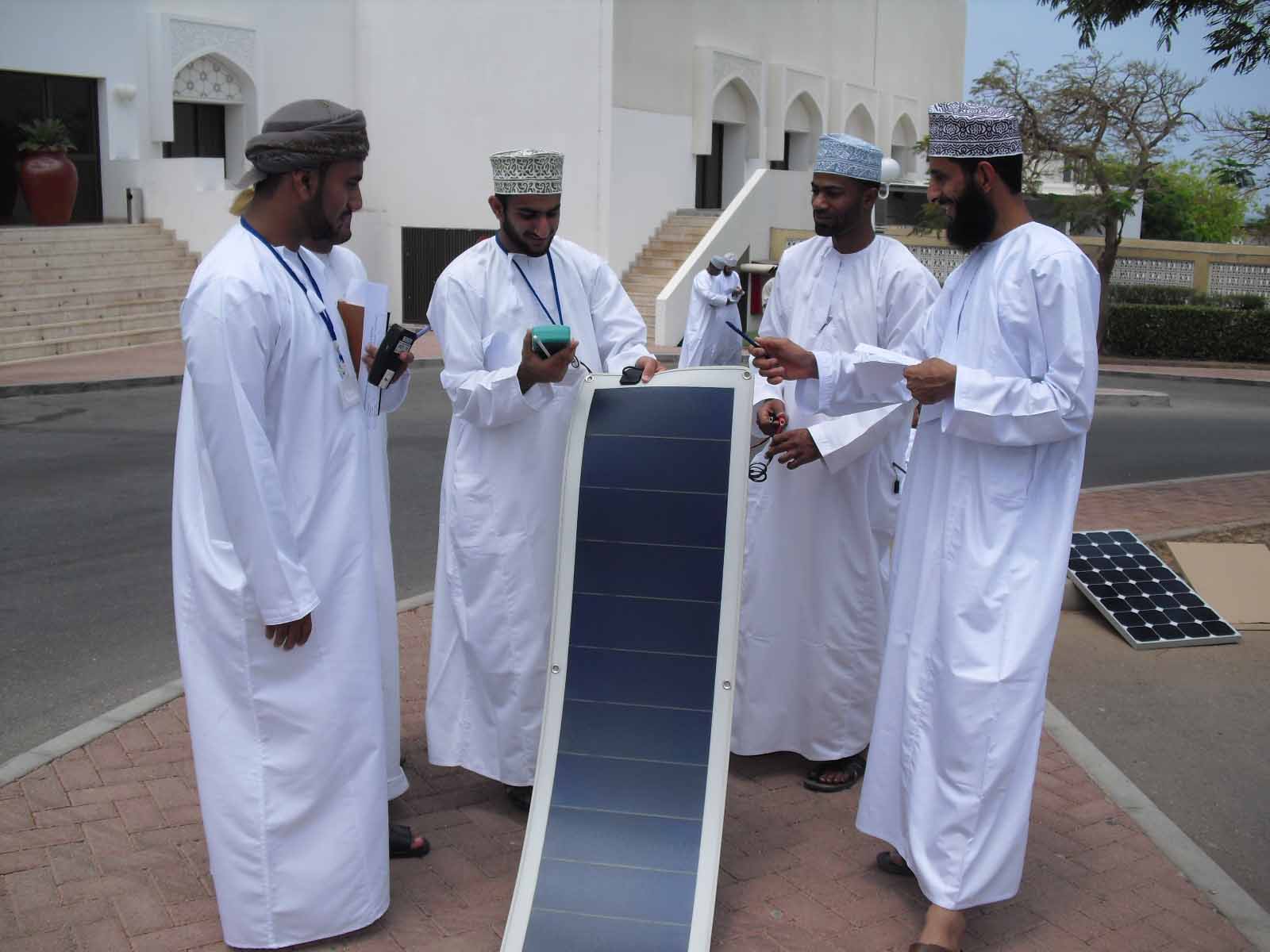
Service Catalogue
Find detailed information about the programme that best aligns with your needs and preferences.
Are you interested in a Customer-specific programmes?
Kindly fill out this questionnaire and attach it to the form on the right:
© 2024 | Renewables Academy (RENAC) AG
